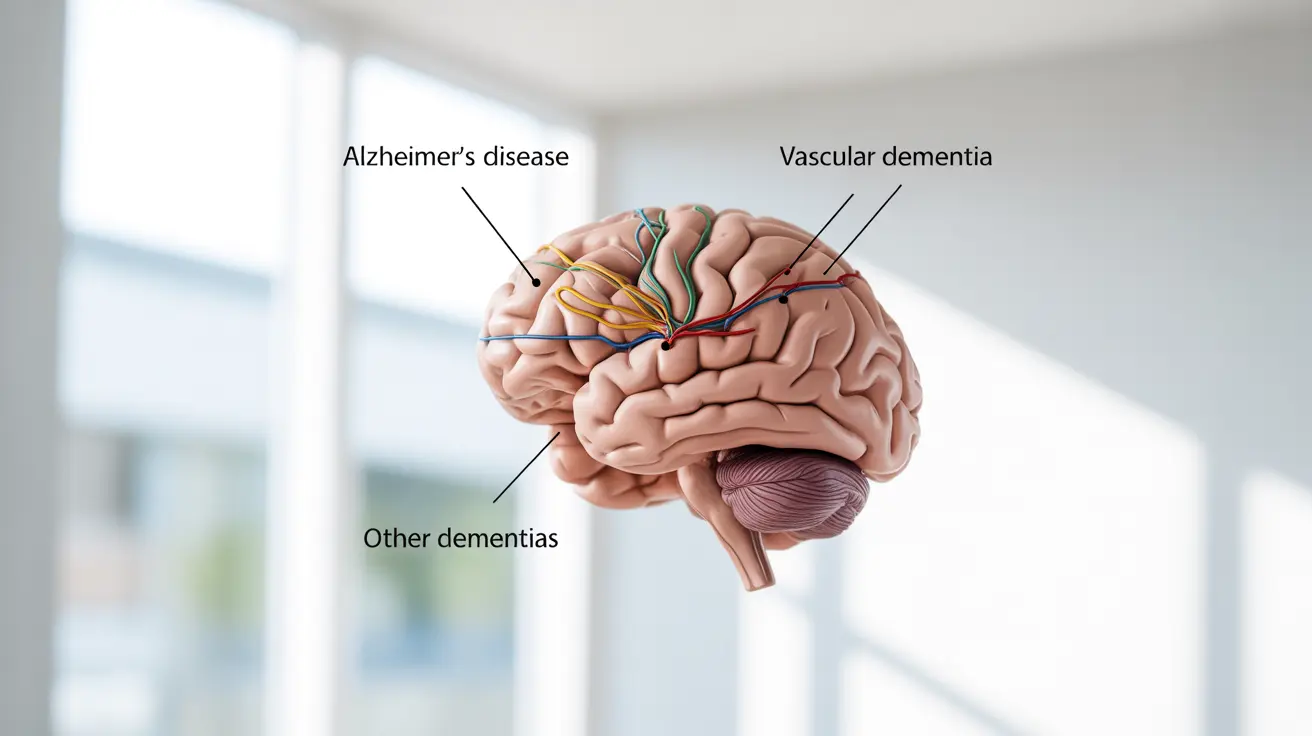Dementia is a complex neurological condition that affects millions of people worldwide, impacting cognitive function, memory, and daily living. Understanding its various causes is crucial for both prevention and management. This comprehensive guide explores the different factors that can lead to dementia, from biological changes in the brain to lifestyle influences.
The Primary Causes of Dementia
Dementia typically develops due to damage or changes in the brain's structure and function. While several conditions can lead to dementia, some causes are more common than others.
Alzheimer's Disease: The Leading Cause
Alzheimer's disease accounts for approximately 60-70% of dementia cases. It occurs when abnormal proteins called beta-amyloid and tau build up in the brain, forming plaques and tangles that disrupt normal brain function and cause cell death.
Vascular Dementia
The second most common cause, vascular dementia, results from reduced blood flow to the brain. This can occur after a stroke or due to damaged blood vessels, preventing brain cells from receiving necessary oxygen and nutrients.
Risk Factors and Contributing Conditions
Age-Related Factors
Age is the most significant risk factor for dementia, with the likelihood of developing the condition doubling every five years after age 65. However, it's important to note that dementia is not a normal part of aging.
Genetic Influences
Genetic factors can play a significant role in some forms of dementia. Certain genes, like the APOE-e4 gene, can increase the risk of developing Alzheimer's disease, while other genetic mutations may cause rare forms of early-onset dementia.
Lifestyle and Environmental Factors
Modifiable Risk Factors
- Smoking and excessive alcohol consumption
- High blood pressure and cholesterol
- Obesity and physical inactivity
- Poor diet and nutrition
- Limited social engagement and cognitive stimulation
Preventable Causes
- Vitamin B12 deficiency
- Thyroid problems
- Medication side effects
- Certain infections
- Depression
Medical Conditions That Can Lead to Dementia
- Lewy body disease
- Frontotemporal dementia
- Huntington's disease
- Parkinson's disease
- Chronic traumatic encephalopathy (CTE)
Frequently Asked Questions
What are the main causes of dementia and how does each affect the brain? The main causes include Alzheimer's disease (protein accumulation in the brain), vascular dementia (reduced blood flow), Lewy body dementia (abnormal protein deposits), and frontotemporal dementia (brain cell loss in specific areas). Each type affects different brain regions and functions distinctly.
How do Alzheimer's disease and vascular factors contribute to the development of dementia? Alzheimer's disease causes brain cell death through protein accumulation, while vascular factors damage blood vessels, reducing oxygen and nutrient flow to brain cells. Both processes lead to cognitive decline and memory loss.
Can lifestyle choices like smoking, alcohol use, and managing blood pressure influence the risk of dementia? Yes, lifestyle choices significantly impact dementia risk. Smoking, excessive alcohol consumption, and uncontrolled high blood pressure can increase the risk, while maintaining a healthy lifestyle can help reduce it.
What role do genetic and age-related factors play in causing different types of dementia? Genetic factors can increase susceptibility to certain types of dementia, particularly early-onset forms. Age remains the strongest risk factor, though genetics can influence both the likelihood and age of onset.
Are there reversible causes of dementia related to vitamin deficiencies, medications, or infections? Yes, some causes of dementia-like symptoms can be reversed with proper treatment. These include vitamin B12 deficiency, thyroid problems, medication side effects, and certain infections. Early diagnosis and intervention are crucial for addressing these reversible causes.




